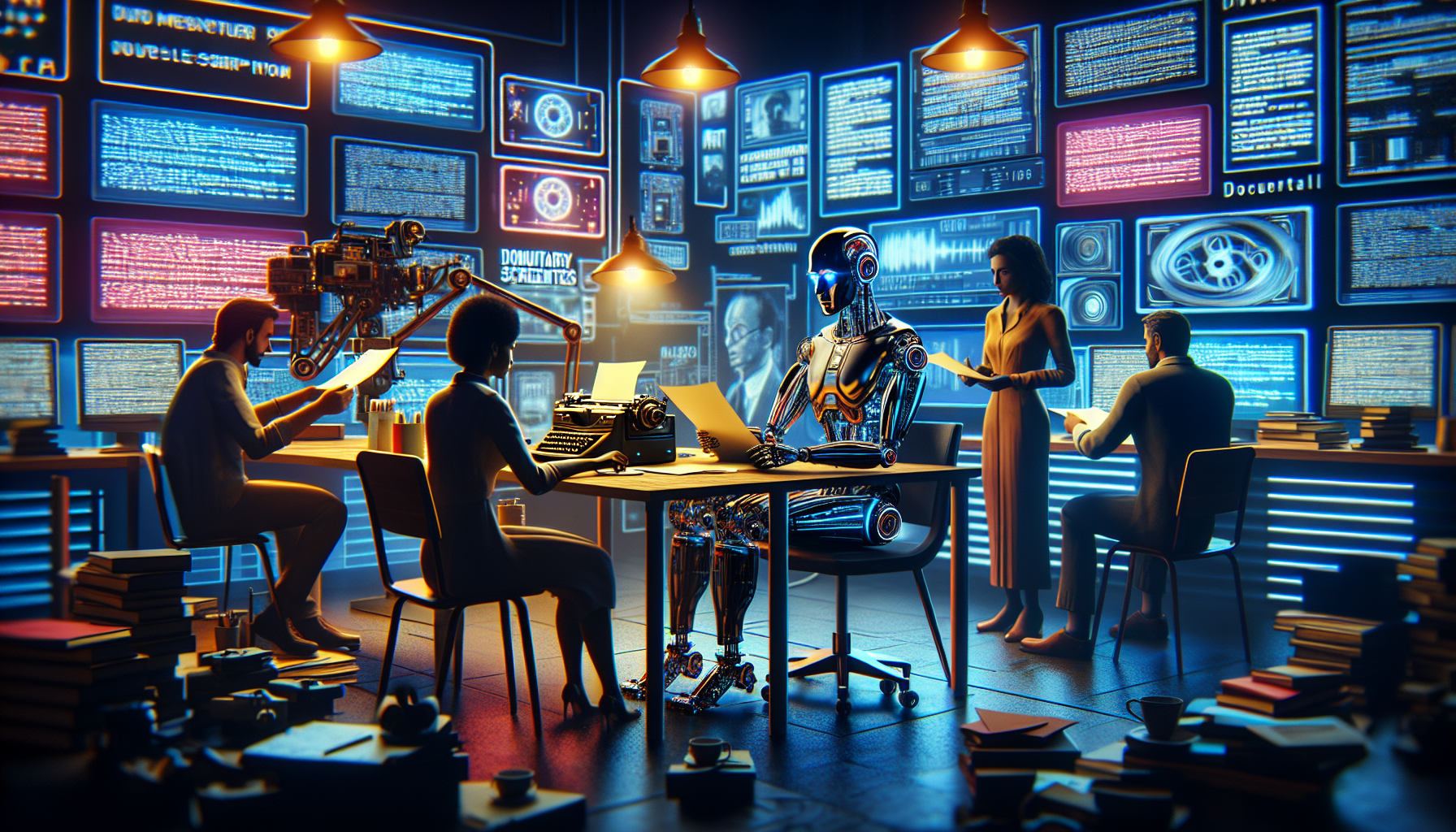
Welcome to the Future: AI as Documentary Screenwriting Partner
Imagine you’re crafting a documentary, buzzing with the thrill of unveiling untold stories or forgotten truths. Now, imagine you’ve got a partner who can work through ungodly hours, process colossal amounts of data, and never complain about the coffee quality. Enter stage left: Artificial Intelligence (AI). With AI’s increasing role in various sectors, it’s no surprise that the realms of documentary filmmaking and screenwriting are also feeling the techy embrace. Let’s dust off the lens cap and zoom into the potential and limitations of AI in documentary screenwriting.
AI as the Ultimate Research Assistant
Trawling through historical archives, parsing research papers, and conducting interviews – the research phase of documentary creation can be akin to searching for a needle in several haystacks. Here, AI tools come in as a Swiss army knife, equipped to slice through data jungles with ease. Advanced algorithms can analyze vast datasets, picking out trends, patterns, and connections at speeds that would leave even the most diligent human researcher winded.
Plus, AI doesn’t just handle the grunt work; it can shine a spotlight on fresh perspectives or overlooked stories that provide your documentary an edge. As any seasoned documentarian knows, the best stories often lie hidden beneath a pile of conventional narratives.
New Kid on the Scripting Block
When it comes to scripting, think of AI as a brainstorming buddy who never runs out of ideas. AI-driven tools like language models can generate detailed outlines, suggest narrative structures, or flesh out character backstories based on historical data or interview transcripts. Struggling to find the right tone for a particular scene? Feed your AI pal a movie list you adore, and it can whip up a dozen lines that might make Tarantino nod approvingly.
Not to mention, AI can be an invaluable ally in maintaining factual accuracy, which is the backbone of any documentary that hopes to stand the test of scrutiny. Fact-checking, important in an era teeming with misinformation, becomes less daunting with AI in your crew.
But Let’s Not Toss the Human Touch Just Yet
While AI has the brains, it hasn’t mastered the heart just yet. Emotionally charged storytelling, which forms the core of impactful documentaries, still requires the human touch. AI might suggest you craft a climax centered around a historical event’s stark statistics, but understanding the emotional undercurrents, those goosebump-inducing moments, comes from human intuition and experiences.
Dealing With Mr. Know-It-All: Limitations of AI in Creativity
AI’s capacity to innovate or think outside the binary box is another debate. Sure, it can churn out contents based on what it’s fed, but can it really replicate the spark of creative genius that has often led to groundbreaking documentaries? Plus, AI’s understanding of cultural nuances, humor, and tragedy is, well, robotic. While it can aid the creative process, leaving the entire creative drive in the hands of a machine might result in a documentary that feels more like a well-organized data report than a stirring narrative.
Collaboration or Competition?
The rise of AI in creative industries also stirs the pot of ethical and professional concerns. What does it mean for the future of documentary screenwriters if AI begins to take on more creative responsibilities? There’s a balance to be struck between leveraging AI’s capabilities and nurturing human creativity. Documentaries, after all, are not just presentations of facts—they are stories about human experiences, something AI is yet a long way from fully understanding.
For now, AI in documentary screenwriting seems poised as a collaborative tool rather than a replacement. Mixing AI’s analytical prowess with a human’s emotional depth could be the recipe for the next big docu-hit. Like any good documentary, the journey of integrating AI into filmmaking promises to be filled with thrilling discoveries and, inevitably, some unexpected plot twists.






